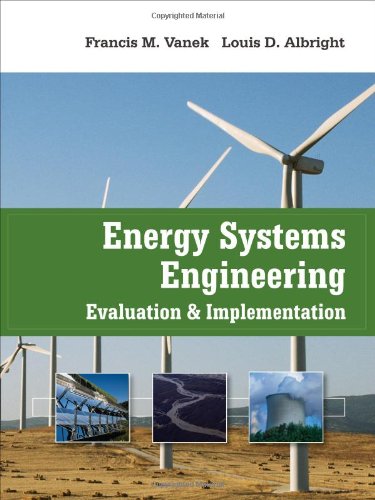

Most ebook files are in PDF format, so you can easily read them using various software such as Foxit Reader or directly on the Google Chrome browser.
Some ebook files are released by publishers in other formats such as .awz, .mobi, .epub, .fb2, etc. You may need to install specific software to read these formats on mobile/PC, such as Calibre.
Please read the tutorial at this link: https://ebookbell.com/faq
We offer FREE conversion to the popular formats you request; however, this may take some time. Therefore, right after payment, please email us, and we will try to provide the service as quickly as possible.
For some exceptional file formats or broken links (if any), please refrain from opening any disputes. Instead, email us first, and we will try to assist within a maximum of 6 hours.
EbookBell Team

4.4
12 reviewsA Unique Systems Approach to Energy Engineering, Covering Carbon-Based, Nuclear, and Renewable Sources!
An essential reference for all engineers and students working with energy systems, Energy Systems Engineering presents a systems approach to future energy needs, covering carbon-based, nuclear, and renewable energy sources. This unique guide explores the latest technology within each energy systems area, the benefits and liabilities of each, the challenges posed by changing energy supplies, the negative impacts from energy consumption, especially CO2 emissions, and the ways in which a portfolio of new technologies can address these problems.
Filled with over 200 detailed illustrations and tables, the book examines short-, medium-, and long-term energy options for the remainder of the twenty-first century. For each energy system, the authors provide equations and problems to help practitioners quantify the performance of the technology and better understand its potential. Energy Systems Engineering features:
An extensive online ancillary package for instructors provides an instructor's manual, solution files, course syllabus, Matlab scripts, and teaching PowerPoint files.
Inside This Cutting-Edge Guide to the Technology of Energy Systems:
Systems Engineering and Economic Analysis Tools • Climate Change • Fossil Fuels, Relative CO2 Emissions, and Modeling of Consumption and Remaining Reserves • Fossil Fuel Combustion Technologies • Carbon Sequestration • Nuclear Energy • The Solar Energy Resource • Solar Technology • Wind Energy • Energy Technologies for Transportation • Systems Issues for Transportation Energy • Other Emerging Renewable Energy Technologies